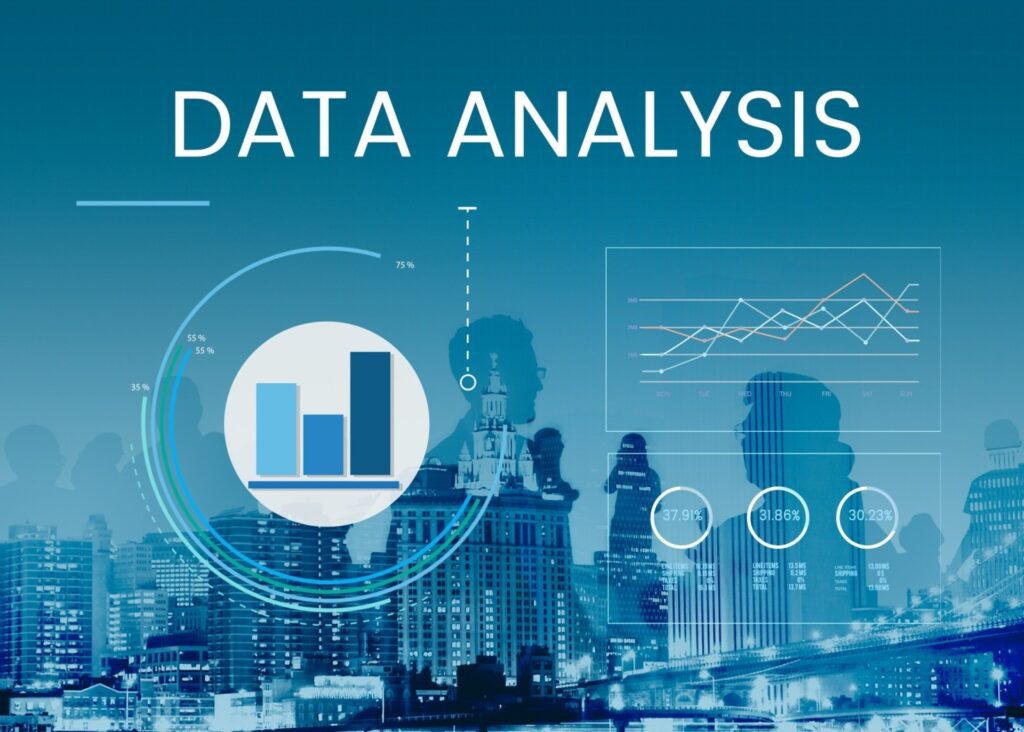In today’s fast-paced corporate landscape, effective use of data analytics for business performance has become essential for sustained success. Businesses in different sectors are increasingly using data to make informed decisions, improve strategies, and boost overall performance. By utilizing metrics, forecast analytics, and sophisticated technology, businesses can improve their processes, acquire deeper understanding of customer actions, and maintain a competitive edge. This article examines how data analytics can significantly impact business performance for organizations striving to excel in ever-changing markets.

Table of Contents
Understanding Data Analytics for Business Performance
Data analytics refers to the systematic computational analysis of data. It role for companies aiming to includes collecting enhance their significant amounts of data operational efficiency, whether and overall effectiveness. operational, financial, or related to customers, and applying statistical models to extract meaningful insights. In the realm of data analytics focused on business performance, these insights are crucial for companies looking to improve their operational efficiency and overall effectiveness.
Businesses have the ability to obtain various types of information, including transactional data, customer information, and data from external sources. This allows them to identify patterns and highlight key performance indicators crucial for prompt decision-making. By implementing business performance analytics, organizations can evaluate their current strategies, understand past performance, and forecast future outcomes. Predictive analytics, for instance, can help companies anticipate customer needs, thereby fostering better engagement metrics and guiding their marketing campaigns toward targeted audiences.
Implementing Business Strategies through Data
Data analytics success is highly dependent on the integration of tools and strategies that provide meaningful insights for businesses. The democratization of analytics within organizations allows employees at all levels to access data-driven insights and contributes to informed decision-making. Data analytics for business performance empowers teams to analyze real-time data and react to emerging trends efficiently.
Moreover, companies are utilizing concepts such as the balanced scorecard and benchmarking to identify areas for improvement. By comparing performance metrics against competitors and industry standards, organizations can pinpoint opportunities for optimization. For example, by analyzing website performance and sales growth, businesses can adjust their strategies to enhance customer acquisition and retention efforts.
The Role of Predictive Analytics
Predictive analytics plays a crucial role in enabling companies to forecast potential future scenarios based on historical data patterns. By employing statistical models and machine learning algorithms, organizations can analyze vast amounts of data to predict buying trends, customer preferences, and even potential risks. A forward-thinking approach to analytics can make business strategies more effective in planning and execution.
In the realm of data analytics for business performance, predictive analytics helps companies to:
1. Anticipate Market Trends: By understanding external data and market dynamics, businesses can proactively adjust their strategies.
2. Enhance Customer Engagement: Organizations can tailor marketing campaigns based on predicted customer preferences, leading to increased engagement metrics and ultimately higher sales.
3. Mitigate Risks: Predictive models can identify potential risks before they materialize, enabling businesses to implement preventive measures.
For instance, companies in the retail sector often rely on predictive analytics to determine stock levels, thereby optimizing their supply chain and preventing overstock or stockouts.
Importance of Performance Metrics

To truly gauge effectiveness, organizations need to define and monitor key performance metrics. A clear understanding of a business’s performance can be gained through its success metrics. In the context of data analytics for business performance, these metrics can include:
- Sales Growth: Examining revenue trends over various timeframes to identify successful products and services.
- Customer Satisfaction Scores: Analyzing customer feedback and engagement metrics to improve service offerings.
- Operational Efficiency: Evaluating production cycles and resource allocation to reduce waste and enhance profitability.
By focusing on these metrics, businesses can align their operational objectives with broader strategic goals, ultimately paving the way for sustained success in a competitive marketplace.
The Future of Data Analytics
As we progress into the future, data analytics will continue to evolve With advancements in AI and machine learning, companies are equipped with powerful tools that facilitate deeper insights and enhance business performance analysis. These technologies will empower businesses to make data-driven decisions at an unparalleled scale and speed, transforming their traditional operational models into more agile ones.
In addition, business operations will require real-time data analytics and embedded analytics. As organizations leverage these capabilities, they can not only monitor ongoing performance metrics but also innovate based on immediate insights, ensuring that they remain responsive to market changes.
In conclusion, data analytics for business performance is no longer a luxury but a necessity for companies vying for success in today’s competitive environment. Businesses can improve efficiency and profitability by utilizing advanced tools, predictive analytics, and a data-driven approach. As we look to the future, the emphasis on data analytics will only intensify, making it imperative for companies to embrace these tools and concepts to ensure their survival and growth in the marketplace. Through thoughtful implementation and continuous refinement of business performance analytics, organizations can unlock unprecedented opportunities and secure their place at the forefront of their industries.
For more latest blog post on Business:
